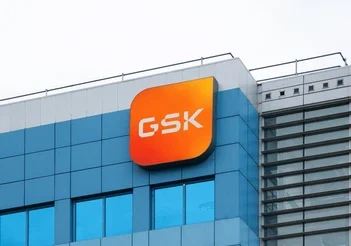(London) — GlaxoSmithKline (GSK), one of the UK’s most iconic pharmaceutical companies, stands as a testament to how a legacy of scientific innovation can translate into global success. Headquartered in Brentford, London, GSK has carved out a prominent position as a leader in the pharmaceutical and healthcare industry. Its mission to help people “do more, feel better, and live longer” underpins its extensive portfolio of medicines, vaccines, and consumer healthcare products. Over the years, GSK’s export operations have played a pivotal role in bolstering its global reputation, solidifying the company as a top-tier exporter in the UK’s industrial landscape.
The Foundations of GSK’s Export Empire
GSK traces its roots back to the early 18th century, though the company in its modern form emerged from the merger of Glaxo Wellcome and SmithKline Beecham in 2000. While its early focus was largely domestic, GSK quickly realized the potential of international markets as pharmaceutical demand surged globally. By the mid-20th century, GSK was already exploring export opportunities, particularly in Europe and North America.
Today, GSK exports approximately 80% of the pharmaceutical and consumer healthcare products it manufactures in the UK. This is a staggering achievement, considering the complexity of pharmaceutical exports, which must adhere to stringent regulatory standards in different countries. GSK’s products reach over 100 countries worldwide, spanning major markets like the United States, China, India, and the European Union. The company’s vaccines and therapeutic drugs have been instrumental in addressing public health challenges, from preventing infectious diseases to treating chronic conditions.
Exporting has become not just a supplementary activity for GSK but a cornerstone of its business strategy. The global market significantly outpaces the UK domestic market in terms of revenue generation, making exports a key driver of the company’s financial performance.
A Comparative Analysis of Domestic and Export Markets
While GSK maintains a strong presence in the UK, its export operations dwarf domestic sales. The UK market accounts for only a small fraction of its revenue, highlighting the limited scale of local demand relative to the global appetite for pharmaceutical products. For instance, the US, the world’s largest pharmaceutical market, contributes significantly to GSK’s revenue, as do emerging markets like India and Brazil, where rising incomes and expanded healthcare access have fueled demand for vaccines and medicines.
The company’s emphasis on vaccines has been particularly successful in the export domain. GSK is one of the world’s leading vaccine manufacturers, and its products are distributed to countries as part of global immunization programs, including collaborations with the World Health Organization (WHO) and UNICEF. These partnerships not only drive revenue but also strengthen GSK’s brand as a socially responsible healthcare leader.
Competitive Edge and Global Strategies
GSK’s competitive advantages stem from its science-led approach to healthcare, extensive research and development (R&D) capabilities, and its ability to scale production to meet global demand. The company invests heavily in R&D, allocating billions annually to develop cutting-edge treatments and vaccines. Its state-of-the-art facilities, including its global R&D site in Stevenage, UK, enable GSK to stay ahead of competitors by bringing innovative products to market swiftly.
One of GSK’s most notable strengths lies in its vaccine portfolio. The company’s ability to deliver high-quality vaccines at scale gives it a significant edge over rivals. GSK’s malaria vaccine, for example, has been lauded as a breakthrough in combating a disease that predominantly affects low-income countries. This achievement not only demonstrates GSK’s scientific prowess but also reinforces its commitment to addressing global health inequities.
Furthermore, GSK’s vertically integrated supply chain and nine manufacturing sites in the UK ensure operational efficiency. These facilities enable the company to produce large quantities of products while maintaining strict quality control standards. The efficiency of its manufacturing processes has been a crucial factor in GSK’s ability to meet the complex demands of international markets.
Another key differentiator is GSK’s commitment to building local partnerships in target markets. In China, for example, GSK has established joint ventures and collaborated with local stakeholders to navigate the country’s regulatory landscape and cultural nuances. This localized approach not only facilitates market entry but also helps GSK adapt its offerings to meet the unique needs of different populations.
Export Value and Future Outlook
While GSK does not publicly disclose exact export figures, estimates suggest that the company generates billions annually from its international operations. With approximately 80% of its UK-manufactured products destined for export, the value of these exports likely exceeds £20 billion per year, contributing significantly to the UK economy.
Looking ahead, GSK is well-positioned to capitalize on emerging trends in global healthcare. The increasing focus on personalized medicine, advancements in biotechnology, and the growing demand for vaccines in the wake of the COVID-19 pandemic present lucrative opportunities for the company. GSK’s investment in mRNA technology, for instance, could pave the way for a new generation of vaccines and treatments, further solidifying its export dominance.
At the same time, GSK must address evolving challenges, including intensifying competition, geopolitical uncertainties, and the need for sustainable practices in manufacturing and distribution. By continuing to innovate and adapt, GSK can maintain its position as a leader in global healthcare exports while contributing to the well-being of millions worldwide.

